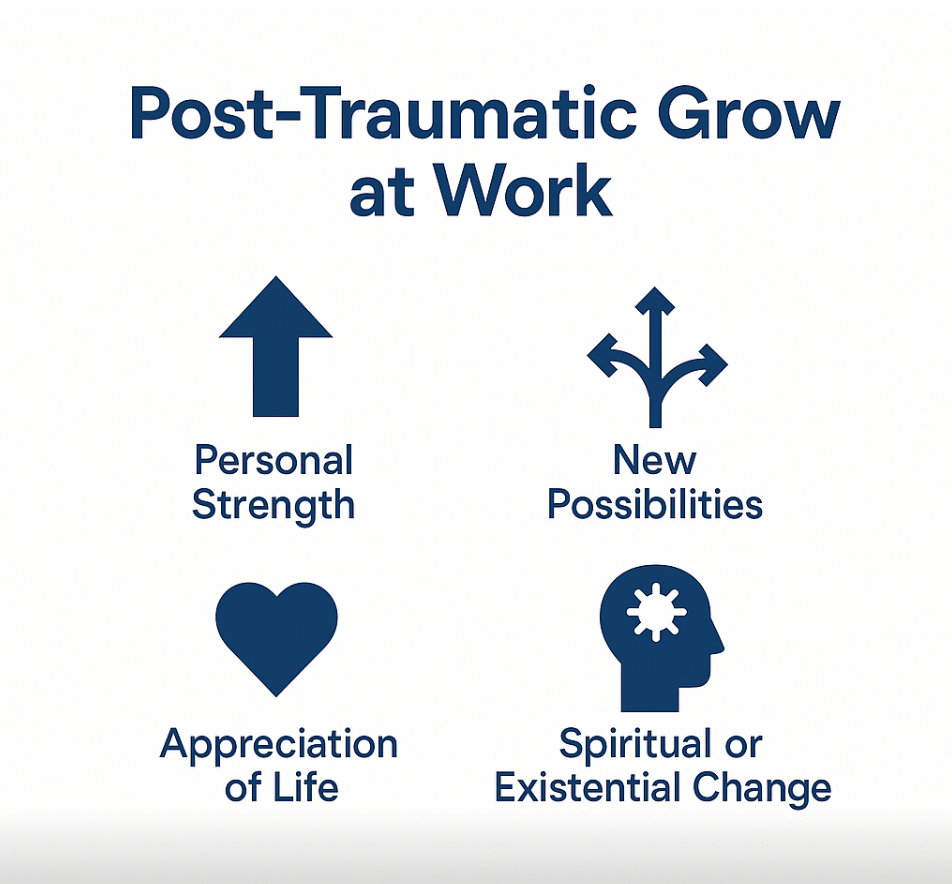Post-Traumatic Growth and Work: Can a Cancer Experience Transform Career Meaning?
- Elevation Occ Psy

- Jul 31, 2025
- 2 min read
When we think about cancer, we often think about loss: loss of health, energy, certainty, even identity. And that’s real. But what if, alongside these losses, something else can emerge.something powerful?
Researchers call it Post-Traumatic Growth (PTG): the positive psychological change that can occur after a major life crisis or trauma. It’s not about minimising suffering or suggesting that hardship is “good.” It’s about acknowledging that some people, after navigating profound adversity, experience shifts that enhance meaning, purpose, and perspective.

What Is Post-Traumatic Growth?
First studied by Tedeschi and Calhoun (1996), PTG is different from resilience. Resilience is bouncing back; PTG is about bouncing forward, developing in new ways as a result of struggle.
PTG typically shows up in five domains:
Personal Strength – Realising “I’m stronger than I thought.”
New Possibilities – Exploring new life or career paths.
Relating to Others – Valuing deeper connections.
Appreciation of Life – A renewed sense of gratitude.
Spiritual or Existential Change – Reconsidering purpose and priorities.
How Does This Play Out at Work?
For employees who’ve experienced cancer, PTG might mean:
Reevaluating Career Goals – Moving from “success at all costs” to work that aligns with values.
Greater Empathy at Work – Becoming a better listener, leader, or collaborator.
Advocacy and Purpose – Using experience to improve workplace wellbeing or support others facing illness.
One executive I interviewed described it this way:
“Before cancer, my job was everything. After, I still care, but I care differently. I choose projects that matter, not just ones that make me look good.”
The Psychology Behind It
Why does PTG happen? Research suggests it’s linked to:
Cognitive Processing – Reflecting deeply on life after trauma.
Social Support – Safe spaces to share, make meaning, and integrate change.
Agency and Autonomy – Feeling empowered to act on new insights.
This means workplaces can play a role, not by “forcing positivity,” but by creating conditions that allow growth to emerge.
What Can Organisations Do?
1. Normalise Reflection and Purpose Conversations
Offer career development frameworks that ask: What matters to you now? This supports employees in aligning post-crisis priorities with their roles.
2. Provide Flexible Pathways
Some employees return wanting reduced hours or a lateral move; others seek new challenges. The key is choice without stigma.
3. Encourage Contribution Beyond the Job
Involve employees in wellbeing initiatives, mentorship, or advocacy programs. These channels can give meaning to difficult experiences.
The Bigger Picture
Post-traumatic growth isn’t guaranteed, and it never erases the hardship of cancer. But when it happens, it can change how people show up at work and in life. Organisations that understand this don’t just help employees “return”, they help them redefine and thrive.
Because in the end, the question isn’t just “How do we help people work again?” It’s: “How do we honour who they’ve become?”
💬 Have you ever experienced a shift in priorities after a major life event? How did work factor into that change?




Comments